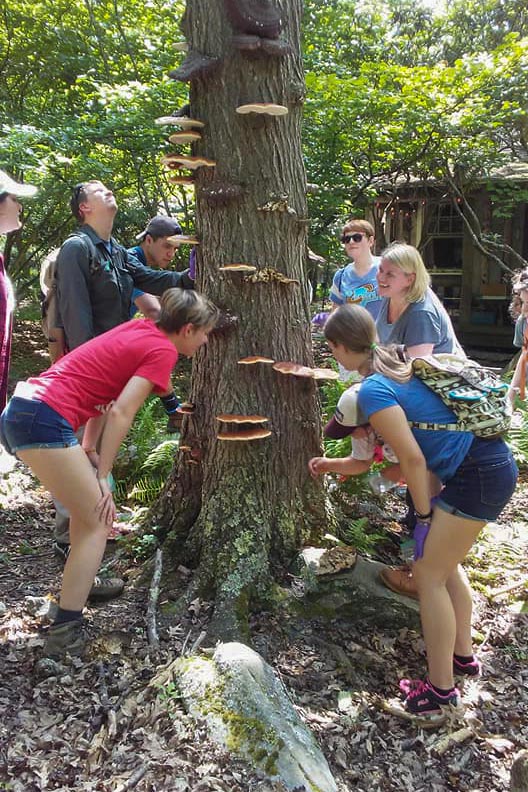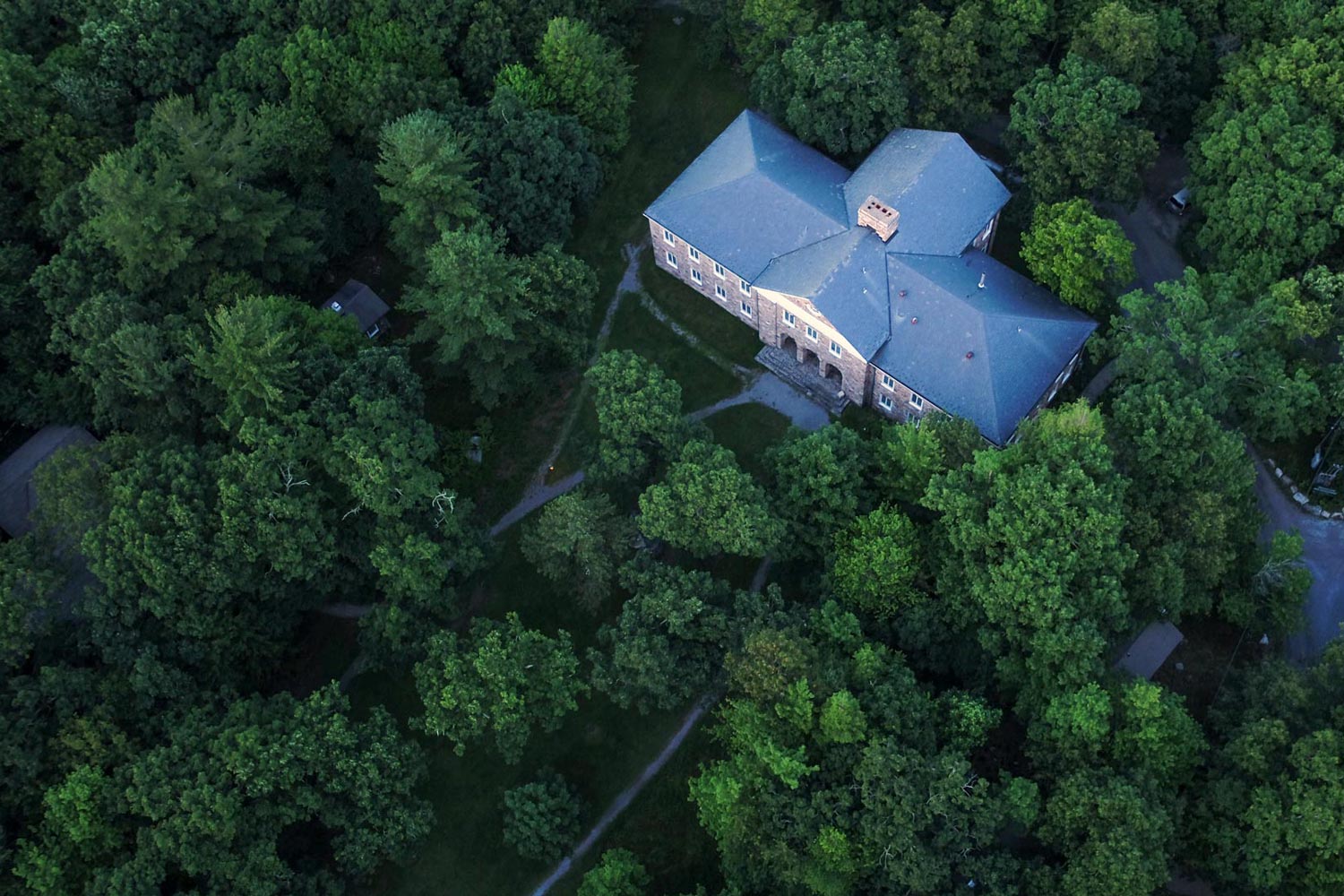Amy Pedersen is a biology researcher at the University of Edinburgh in Scotland, but she has a close and continuing connection with the University of Virginia’s Mountain Lake Biological Station.
While earning her Ph.D. in biology from UVA – awarded in 2005 – Pedersen often went to the station, located in a remote part of southwestern Virginia, to conduct ecological research and to teach graduate and undergraduate students in the summer.
She has since returned three times, including this summer, to teach “Ecology of Wildlife Diseases” with two other professors who are long-time members of the Mountain Lake scientific community: Sonia Altizer of the University of Georgia and Dana Hawley of Virginia Tech.

Ph.D. alumna Amy Pedersen, middle right, with students in her summer “Ecology of Wildlife Diseases” course. (Submitted photo)
Pedersen recently discussed why she finds Mountain Lake and UVA worth crossing an ocean for.
Q. Why do you continue to return to Mountain Lake Biological Station?
A. Mountain Lake is a magical place because it provides an opportunity for scientists of any age, from undergraduates to full professors, to work in the field in a very beautiful and biologically diverse area. I spent much of my time while in graduate school at the station conducting my research, interacting with colleagues, students and advisers, and enjoying the unique and dynamic academic atmosphere.
While the questions being addressed at the station vary between ecological to evolutionary, and the systems studied are very diverse and always changing, there is a genuine focus on understanding natural history – which is often lacking in more traditional laboratory and classroom settings.
I was very enthusiastic to come back this summer to teach with my colleagues Sonia Altizer and Dana Hawley, both of whom had been students in the Research Experience for Undergraduates program at Mountain Lake. We had previously taught together at the station in 2008. It is always exciting to teach undergraduate and graduate students about the ecology of wildlife diseases at Mountain Lake because it gives us the unique ability to pair more traditional lectures with hands-on field and laboratory experiences across a diverse set of organisms in the wild, such as mice, bats, birds, salamanders and insects.
The students live at the research station during the course, which gives them opportunities to meet scientists and learn more about research through both formal activities such as evening seminars, but also more informally at scheduled meal times or social events.
Q. How did you first become involved with the station?
A. My first experience at Mountain Lake was in the summer of 2000, right before I was to start graduate school at UVA. During the few months that I was at Mountain Lake, I worked as a research assistant for my Ph.D. supervisor, UVA biology professor Janis Antonovics, and was enrolled as a graduate student in “Wildlife Disease Ecology” – the first time it was taught at Mountain Lake.
While I was already set to start my graduate studies working on the ecology of infectious diseases, this experience in the course and at the field station were pivotal in my choice to focus my research on how parasites and pathogens influenced the population dynamics of white-footed mice in the forests surrounding Mountain Lake. These mouse populations had been studied for over 25 years and therefore provided an amazing system for investigating the importance of parasitism.

Mountain Lake provided not only the facilities needed to do this research, but also the stimulating academic community that helped me further develop my scientific questions and ideas.
Q. How important is undergraduate research for developing scientists?
A. Undergraduate research is crucial for cultivating future scientists. In my time as a graduate student working at Mountain Lake, I mentored six students in the NSF-funded program Research Experience for Undergraduates. Several of these students have continued on in scientific careers, including two former UVA students who hold faculty positions in the United Kingdom: Dr. Kyle Dexter, now at the University of Edinburgh in geosciences; and Dr. Daniel Streicker, now faculty at the University of Glasgow.
Mountain Lake provides an excellent opportunity for students to engage with research and with scientists, enabling them to get a really in-depth view of the process of research and what a scientific career looks like.
Q. How did your graduate experience at UVA translate to an academic career in the United Kingdom?
A. My graduate experience at UVA was fundamental to my academic career and current position as a research fellow and reader at the University of Edinburgh. Both the academic community and the facilities and resources available at Mountain Lake enabled me to conduct large-scale experiments in a wild mammal population while a graduate student. The results of these studies helped me to obtain an independent research fellowship in the United Kingdom in 2006.
Since then, I have established a similar wild rodent-parasite field system in Scotland to further understand the role of parasites in natural mammal populations. But my experience at Mountain Lake was fundamental to who I am as a scientist and I cherish the time that I have spent there, and look forward to future visits as well.
Media Contact
Article Information
July 23, 2018
/content/qa-uvas-mountain-lake-keeps-scientist-coming-back-across-pond

